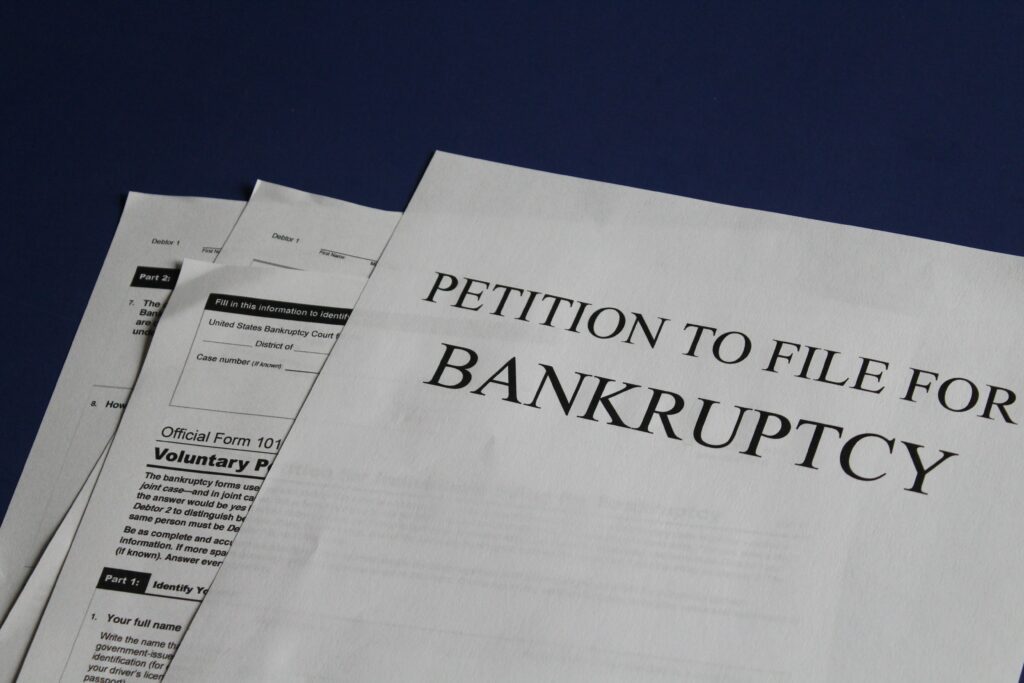While declaring bankruptcy may seem like an intimidating decision, there are some situations in which it is the only option available to you. Making this call can have lifelong financial repercussions – but sometimes, it’s a step that you have to take.
Here is how to determine if bankruptcy is necessary for you, especially if you run a business in Australia.
You’ve Spoken With Financial Counselors
As mentioned above, bankruptcy should never be a person’s first choice. Instead, it’s always best to speak to financial counseling agencies within the country that specialize in this area before you make a final decision. You can access free help, and the experts will be able to provide you with alternatives that may be available to you.
However, alternatives are not always possible. If you’ve already spoken with a seasoned financial counselor that is well known in Australia who has suggested that bankruptcy is a good option for your financial situation, it’s a good sign that you need to take the next steps on this journey. Financial counselors are meant to be impartial, which means that speaking with them is a good way to determine whether you’re truly on the right track.
International Travel isn’t a Necessity
Before declaring bankruptcy, it’s essential that you understand how this decision can affect the rest of your life. If you are considering the question of why declaring bankruptcy may be your only option, it’s important to take Australian laws into account. One of the most important laws that people often overlook relates to travel.
What people don’t recognize is that traveling overseas post-bankruptcy poses significant challenges. Your trustee must approve your travel requests in writing, which means that any international travel for the duration of your bankruptcy – whether personal or work-related – is heavily constrained, and if your job requires travel to other countries, you will need to look at other options.
You Need Help Only with Certain Debts
Bankruptcy isn’t a magic bullet – it doesn’t cover all your debts. If part of the reason you want to declare bankruptcy is that you are overwhelmed with child support, unliquidated debts, and so on, this is not the right choice for you. Additionally, secured debts that are tied to the property, like mortgages and car loans, can still be called in.
When this happens, the debtor will take possession of the property in question.
However, if the debts you are facing issues with include things such as:
- Credit card debt
- Unpaid rent
- Unsecured personal loans
- Medical debt
Then bankruptcy may be an option for you.
It’s essential to remember that, before declaring bankruptcy, seeking professional help is a must. Not only will they be able to provide you with other alternatives if possible, but they’ll also ensure that you’re fully educated on the consequences of the decision you’re making.
Moving Into Another Region with Other Bankruptcy Exceptions
When filing for bankruptcy, you are not required to leave all of your assets. Each state provides a list of bankruptcy exceptions that you can utilize to keep the property you’ll need to work and live in order to avoid filing for bankruptcy. If you’ve relocated to a new state and the new exemption rules don’t provide you with the same level of protection as those in your previous state, you should file for bankruptcy as quickly as possible. Your domicile will determine which states provide tax exemptions. If you’ve just relocated, it’s likely that you’ll take advantage of the tax exemptions offered by your previous state.
Your New Job Pay Can Delay The Consequences
To be eligible for bankruptcy, you must pass a financial means test. In order to pass the means test, you must have earned at least a certain amount set by the court in the last 6 months before filing for bankruptcy. With a larger salary comes a lower chance of passing the means test. If you’ve just begun better-paying work, you’ll have a greater average monthly income when you finally file because of the delay. You may be capable of passing the means test if you file for bankruptcy as soon as possible. However, bear in mind that the trustee and the court will take other factors into account. In the event that your real income exceeds your required monthly costs, the trustee may suggest converting your case.
Stopping a Lawsuit
If you’re being sued for hospital bills, credit card debt, automobile accident damages, or a contract breach, declaring bankruptcy will put an end to the claim. Defending these cases is pointless if you are eligible for a discharge of the debt.
The last thing you want is to wake up six months after declaring, only to find out that you’ve overlooked some part of the law, and you now need to spend significant amounts of time unraveling the repercussions. Consulting a professional that understands Australian bankruptcy laws will ensure that doesn’t happen and that you’re ready for the next steps you’ll have to make post-bankruptcy. Furthermore, they’ll also be able to help you with the logistics of declaring bankruptcy, so the court process is easier for you.


